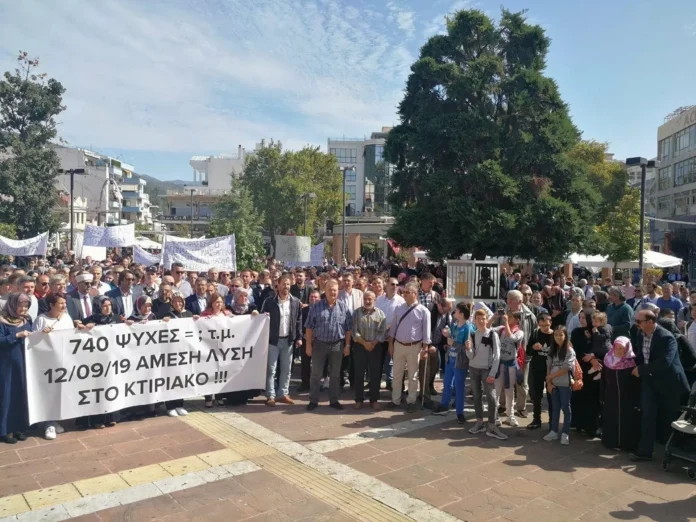The Turkish minority community of Greece is an integral part of the country’s diverse cultural fabric. For decades, this community has been struggling to preserve its identity and cultural heritage while facing systemic violations of their educational rights in Greece. Despite being guaranteed under the 1923 Treaty of Lausanne, the Turkish minority community continues to face discrimination and neglect in the country’s education system.
The Treaty of Lausanne, signed in 1923, guaranteed the educational rights of minority communities in Greece, including the Turkish minority. It recognized their right to preserve their cultural and linguistic identity through education in their mother tongue. However, this promise has not been fulfilled, and the Turkish minority community has been repeatedly denied their right to proper education.
The community’s grievances stem from the inadequate number of schools and teachers available to provide education in the Turkish language. According to recent reports, there are only four Turkish schools in Greece, which are not enough to cater to the needs of the minority community. These schools are also facing a shortage of teachers, with some schools having only one teacher for multiple grades and subjects. This has resulted in overcrowded classrooms and a lack of resources, making it difficult for students to grasp the curriculum.
Moreover, the curriculum taught in these schools is heavily biased towards Greek culture and language, leaving little room for cultural diversity and inclusivity. The Turkish language is not given enough importance, and there is a significant dearth of Turkish literature, history, and cultural studies in the curriculum. This not only deprives the students of their cultural identity but also limits their academic and personal growth.
The lack of proper education has had a severe impact on the Turkish minority community. Students struggle to learn and excel in the Greek-dominated education system, leading to a high dropout rate, especially at the secondary level. This, in turn, hinders their chances of pursuing higher education and finding decent employment opportunities. As a result, the community suffers from a vicious cycle of poverty and social exclusion.
The Turkish minority community has been fighting for their educational rights for decades, and their peaceful protests have fallen on deaf ears. Despite their efforts, the Greek government has failed to address their grievances and take any concrete measures to improve their education system. This continuous neglect by the authorities has left the Turkish minority community feeling marginalized and disheartened.
However, amidst all the challenges, the Turkish minority community has shown tremendous resilience and determination to not give up on their rights. They have formed community organizations and have been actively lobbying for their cause. Their persistent efforts have gained international attention and support, with the Human Rights Watch closely monitoring the situation.
The Turkish community’s struggle for their educational rights is not just a national issue but also a matter of human rights violation. It is the responsibility of the Greek government to uphold the Treaty of Lausanne and ensure the fundamental rights of all its citizens, regardless of their ethnicity or culture. Providing quality education to the Turkish minority community is crucial for their integration into Greek society and promoting a harmonious co-existence.
Despite the challenges and setbacks, there have been some positive developments in recent years. In 2018, a new law was passed, allowing students to learn their mother tongue as a second language in public schools. This was a significant step towards recognizing the importance of preserving minority languages and cultures. However, the implementation of this law has been slow, and there is still a long way to go.
In conclusion, the Turkish minority community of Greece is still lamenting the numerous violations of their educational rights. The Greek government must acknowledge and address these issues, as promised under the Treaty of Lausanne, and take concrete steps to ensure a quality education for the Turkish minority community. It is time for the authorities to listen to the community’s demands and work towards creating a more inclusive and diverse education system in Greece. Only then can the Turkish minority community truly feel like equal citizens of Greece and contribute to the country’s progress and development.


